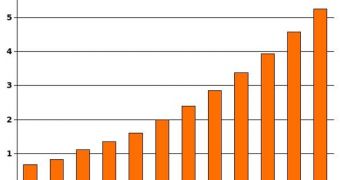University of Bath researchers conclude in a new scientific study that some of the symptoms associated with autistic conditions such as the Asperger Syndrome (AS) may be associated with lower levels of the cortisol stress hormone in the human brain. UB Department of Psychology experts Dr. Mark Brosnan and Dr. Julie Turner-Cobb, the leaders of the new investigation, have shown that the need for routine and the resistance to change that autistic children experience is directly linked to this stress hormone.
In healthy individuals, the brain experiences a surge in cortisol as soon as people wake up. This is a natural function of the organ, and experts hypothesize that it happens in order to keep people alert of the day ahead. Over the course of the day, the surge gradually diminishes in intensity, as individuals grow more and more aware of their surroundings, and the brain becomes able to process large amounts of data. In their study, Brosnan and Turner-Cobb have established that this surge does not occur in children suffering from AS or other forms of autism.
“Cortisol is one of a family of stress hormones that acts like a 'red alert' that is triggered by stressful situations allowing a person to react quickly to changes around them. In most people, there is a two-fold increase in levels of this hormone within 30 minutes of waking up, with levels gradually declining during the day as part of the internal body clock,” Brosnan explains.
“Our study found that the children with AS didn't have this peak although levels of the hormone still decreased during the day as normal. Although these are early days, we think this difference in stress hormone levels could be really significant in explaining why children with AS are less able to react and cope with unexpected change,” he adds.
“These findings are important as they give us a clearer understanding about how some of the symptoms we see in AS are linked to how an individual adapts to change at a chemical level,” the co-author of the study, Dr. Turner-Cobb, who is a UB senior lecturer in Psychology, concludes. The paper is published in a recent issue of the journal Psychoneuroendocrinology.

 14 DAY TRIAL //
14 DAY TRIAL //